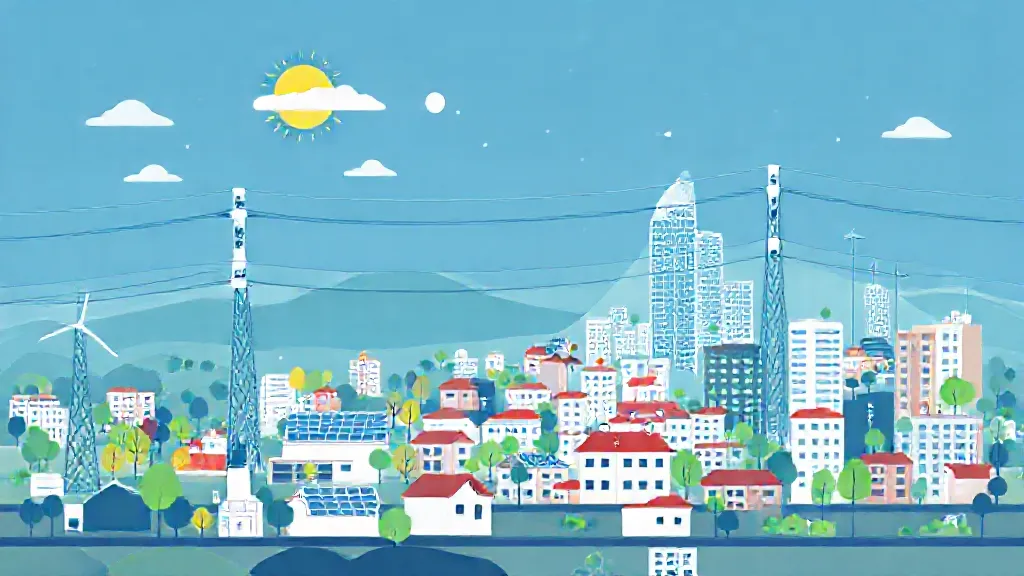The energy landscape is undergoing a significant transformation, driven by the integration of smart grid technology. Smart grids represent a modernized electrical grid that utilizes digital communication technology to detect and react to local changes in usage. This innovation is not just about enhancing efficiency; it holds the potential to revolutionize how energy is produced, distributed, and consumed, paving the way for a more sustainable future.
Understanding Smart Grids and Their Components
Smart grids encompass a variety of technologies that enable two-way communication between utility providers and consumers. This includes advanced metering infrastructure (AMI), smart meters, and sensors that monitor energy flows in real time. By providing detailed data on energy consumption patterns, smart grids empower consumers to make informed decisions about their energy usage, fostering a culture of conservation and efficiency.
The Role of Renewable Energy Integration
One of the most compelling aspects of smart grids is their ability to integrate renewable energy sources such as solar and wind power. Traditional grids often struggle with the intermittent nature of these energy sources, but smart grids can manage this variability by balancing supply and demand dynamically. For example, during peak sunlight hours, excess solar energy can be stored or redirected to meet demand, reducing reliance on fossil fuels and lowering greenhouse gas emissions.
Enhancing Energy Efficiency and Reliability
Smart grids enhance energy efficiency by enabling utilities to optimize their operations. With real-time data, utilities can predict peak demand periods and adjust their generation accordingly, reducing waste. This not only leads to cost savings for consumers but also minimizes the environmental impact of energy production.
Moreover, smart grids improve reliability by quickly identifying and addressing outages, ensuring a more stable energy supply.
Empowering Consumers Through Smart Technology
The advent of smart meters and home energy management systems allows consumers to monitor their energy usage in real time. This transparency enables users to identify high-consumption appliances and adjust their habits accordingly.
For instance, consumers can program their smart thermostats to reduce heating or cooling during off-peak hours, thus saving money and energy. This shift towards consumer empowerment is crucial in fostering a culture of sustainability.
Economic Benefits of Smart Grids
Beyond environmental advantages, smart grids offer substantial economic benefits.
By reducing energy waste and optimizing resource allocation, they can lead to lower energy costs for consumers. Additionally, the implementation of smart grid technology can create jobs in various sectors, from manufacturing to IT, contributing to economic growth. The initial investment in smart grid infrastructure can yield significant long-term savings for both utilities and consumers.
Challenges and Considerations in Implementation
Despite the numerous benefits, the transition to smart grids is not without challenges. Issues such as cybersecurity, privacy concerns, and the need for substantial investment in infrastructure can hinder progress. Moreover, the integration of diverse energy sources and technologies requires collaboration among various stakeholders, including government agencies, utility companies, and consumers.
Addressing these challenges is essential for realizing the full potential of smart grids.
The Future of Energy with Smart Grids
As technology continues to evolve, the future of energy consumption is likely to be heavily influenced by smart grid advancements. Innovations such as artificial intelligence and machine learning can further enhance grid management, predicting energy demand and optimizing resources more effectively.
The ongoing development of electric vehicles (EVs) and energy storage solutions will also play a crucial role in shaping a smart energy ecosystem.
Conclusion: A Sustainable Path Forward
In conclusion, smart grids have the potential to revolutionize energy usage by enhancing efficiency, integrating renewable resources, and empowering consumers. As we move towards a more sustainable future, embracing smart grid technology will be vital in addressing the challenges of climate change and energy security.
By investing in this transformative technology, we can create a resilient energy system that benefits both the environment and the economy.
